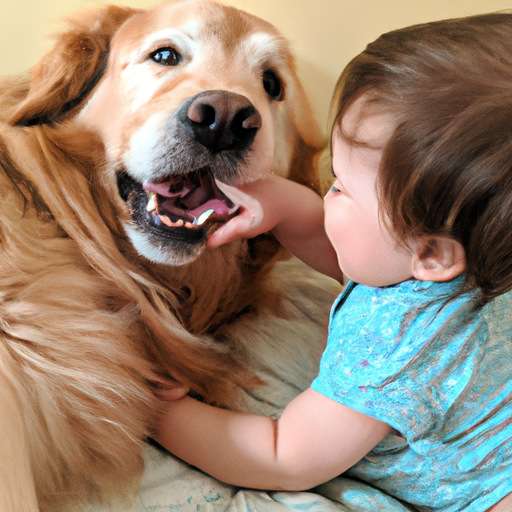Understanding the Canine Nature
You’ve probably seen it, maybe even experienced it. A dog, usually rambunctious and playful, suddenly becomes calm and gentle around a baby. It’s as if they instinctively understand that babies are fragile and need to be treated with extra care. But how do they know this?
Dogs are intelligent and highly perceptive animals. They can pick up on subtle cues that we humans often miss. In fact, some researchers believe that dogs are capable of reading human emotions better than any other animal, including chimps, our closest evolutionary relatives.
The Role of Smell
One of the key ways dogs understand their world is through their sense of smell. To dogs, every person has a unique scent that conveys a wealth of information. Babies, with their unique smell, signal to dogs that they are different, perhaps vulnerable.
- Newborns: Babies have a distinct, powdery smell that is very different from adults. This scent may signal to dogs that babies are small, fragile creatures who need protection.
- Crying: The smell of tears can also trigger a response in dogs. Research has shown that dogs are more likely to approach someone who is crying than someone who is humming or talking.
Observing Human Behavior
Dogs are keen observers of human behavior. They watch how we interact with each other and with them. When they see us treating babies with extra care and gentleness, they may mimic our behavior.
- Mimicry: Dogs often mirror their owner’s behavior. If they see you handling the baby gently, they will likely do the same.
- Obedience: If you’ve trained your dog well, they will understand and obey your commands to be gentle around the baby.
The Pack Mentality
Dogs are pack animals. They view their human family as their pack and will naturally want to protect the youngest and most vulnerable members.
| Pack Mentality Aspect | Dog’s Behavior |
|---|---|
| Protection | Dogs feel the need to protect their pack. |
| Social Hierarchy | Babies, like puppies, are seen as lower in the hierarchy and thus warrant protection. |
| Bonding | Dogs may also feel a strong bond with the baby, much like they would with a puppy in their pack. |
Training and Socialization
While many dogs naturally behave gently around babies, proper training and socialization are still crucial. You should always supervise interactions between your dog and your baby, and train your dog to behave appropriately.
- Training: Teach your dog basic commands like “sit,” “stay,” “down,” and “leave it.”
- Socialization: Expose your dog to different people, environments, and situations.
FAQ
Q: Can all dogs instinctively know how to be gentle with babies?
A: While many dogs display gentleness with babies, it’s not universal. It depends on the dog’s temperament, training, and experiences.
Q: Is it safe to leave my baby alone with the dog?
A: No, you should always supervise interactions between your dog and your baby.
Q: How can I train my dog to be gentle with my baby?
A: Start with basic obedience training. Reward your dog for calm behavior around the baby. Never force interactions.
Q: Can my dog get jealous of the new baby?
A: Yes, dogs can feel jealous. Spend quality time with your dog to help prevent jealousy.



